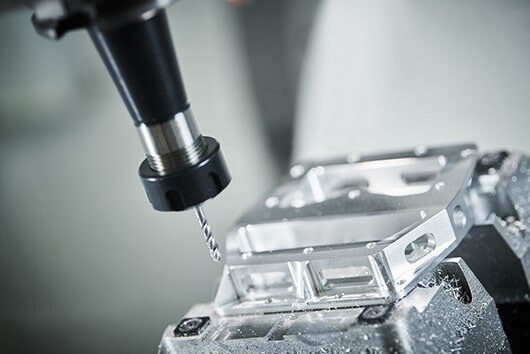How precision machining is impacting the future of medical device fabrication from buzai232's blog
How precision machining is impacting the future of medical device fabrication
Industry 4.0 is in full gear, and more and more companies are making the step toward digital manufacturing. CNC machines are chipping away material at blazing speeds with enhanced artificial intelligence and accuracy, ensuring that the product meets the intent of the design engineer.To get more news about 5 axis cnc machining services, you can visit runsom.com official website.
With precision machining, the struggle for geometric dimensioning and tolerancing is over, since parts will be consistent with the 3D model to the micron.
This is a considerable achievement, since deviations are often visible across parts of the same batch, causing high scrap rates and failures to meet performance requirements.
Computer numerical control (CNC) does not hold onto heat-affected zones or other mechanical flaws of 3D printing, which is more suitable for prototypes and preoperative planning models. By milling the material as-is, it retains its homogeneous mechanical properties for meeting higher quality standards.
Precision technology is not just an incremental improvement. It has a radical impact on medical applications.
It's capable of making long-lasting parts that can be carried on or inside the body for a good part of a lifetime. Solutions that were hitherto impossible can now enable new forms of microsurgery, such as on embryonic infants, blood vessels, or the brain.
With precision technology, the product casing, internal architecture, electronics integration, and cabling solutions for your biometric tracker or digital X-ray are optimised. For wearables like heart monitor implants or pacemakers, their minimally invasive form factor with ultra-thin walled micro moulded enclosure is game-changing both in terms of comfort and aesthetic sensibility.
The instruments it makes also enable robot-assisted surgery like heart valve surgeries. And we witness great growth for tiny parts like septums, sensors, microelectronics, microneedles, stents, and micro-machined screws. Needless to say, this requires great specialisation on the part of the supplier.Based on body scans, these complex solutions can be machined to be exactly attuned to the patient's biomechanics. This stands in stark contrast to traditionally hand-made components. With a precision-machined product, there is no more human error, no patient dissatisfaction, no second operation.
Professionals like surgeons and dentists benefit from having access to precision manufacturing. To their preference, they can now develop custom tools such as cutters, biopsy needles, implant holders, forceps, nebulisers, and blade handles, or outfit the robotic assistant with custom grippers.
In the future, medical professionals will use digital customiser apps to create bespoke components to spec, locally, and on demand.
Post
| By | buzai232 |
| Added | Apr 13 '23, 08:54PM |
Tags
Rate
Archives
- All
- December 2017
- November 2017
- October 2017
- September 2017
- June 2017
- May 2017
- December 2018
- November 2018
- October 2018
- September 2018
- August 2018
- July 2018
- June 2018
- May 2018
- April 2018
- March 2018
- January 2018
- December 2019
- November 2019
- October 2019
- September 2019
- August 2019
- July 2019
- June 2019
- May 2019
- April 2019
- March 2019
- January 2019
- December 2020
- November 2020
- October 2020
- September 2020
- August 2020
- July 2020
- June 2020
- May 2020
- April 2020
- March 2020
- January 2020
- December 2021
- November 2021
- October 2021
- September 2021
- August 2021
- July 2021
- June 2021
- May 2021
- April 2021
- March 2021
- February 2021
- January 2021
- December 2022
- November 2022
- October 2022
- September 2022
- August 2022
- July 2022
- June 2022
- May 2022
- April 2022
- March 2022
- February 2022
- January 2022
- December 2023
- November 2023
- October 2023
- September 2023
- August 2023
- July 2023
- June 2023
- May 2023
- April 2023
- March 2023
- February 2023
- January 2023
- December 2024
- November 2024
- October 2024
- September 2024
- April 2024
- February 2025
- January 2025

The Wall